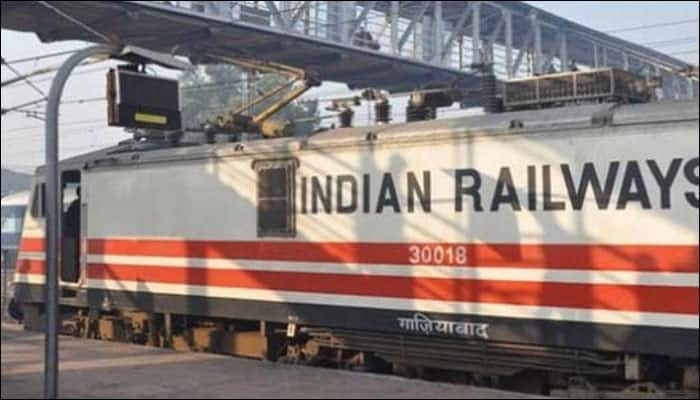New Delhi: The Indian railways recently unveiled its non-fare revenue (NFR) policy, which permits trains, level-crossings and areas along the tracks to be used for advertising.
Post this move, the health ministry has requested the railway authorities to avoid advertising those products that are unhealthy or harmful for health, like high-fat foods, aerated beverages or alcohol and tobacco items, in surrogate or indirect manner, on trains.
In a letter to Railway Board Chairman A K Mittal, Health secretary C K Mishra said, "Indirect, surrogate or illegal advertisements of alcohol, tobacco products, as well as unhealthy food products that can increase the risk of non communicable diseases (NCDs) is a matter of concern."
He asked the railways not let its assets to be used for advertising products which have negative health impact.
"Any move to further promote products that have negative health externalities will be counter-productive and will scuttle on-going efforts to reduce or regulate consumption of alcohol, tobacco, food containing high fats, sugar and salt (HFSS), sugar sweetened beverages (SSBs) including aerated and non-aerated beverages," Mishra wrote in the letter.
The health ministry got air of the revenue-increasing move allowing advertisments on trains through media reports.
"Against this background and in view of the high negative externality for public health, it is therefore requested that the assets of Indian Railways are not used to advertise products which have negative health impacts," Mishra said.
"While this (NFR policy) is a welcome step, as it will provide revenue to the government, however, such initiative can be used by the industry to promote products such as alcohol, tobacco, food containing high fats, sugar and salt, sugar sweetened beverages including aerated and non-aerated beverages that have negative health externalities," he said.
"Advertisements of such products will result in unfavourable health and economic consequences for individuals, families and for the nation at large," Mishra said.
275 million or 35 percent of adults in India use tobacco, which means that the country has the second largest number of tobacco users in the world. Out of these, approximately 10 lakh fall victim to tobacco-related diseases every year.
According to the Global Adult Tobacco Survey, around 2,500 Indians die of tobacco-related diseases daily and it is estimated that about 5,500 youth and children (as young as 8-years-old), start using tobacco every day.
The total direct and indirect cost of diseases attributable to tobacco use was a staggering Rs 1.04 lakh crore (USD 17 billion) in 2011 or 1.16 per cent of India's GDP.
In order to address the health and developmental burden of NCDs in a sustainable manner, a coordinated multi-sectoral response is required with due attention to the underlying causes, Mishra said.
The health ministry has developed National Multisectoral Action Plan (NMAP) for prevention and control of NCDs and the Railways have agreed to this plan as well, he said.
In the past, the health ministry has partnered with the Indian Railways in various awareness generation activities, such as launch of 'Red Ribbon' train and use of train wrap ups under tobacco control programme, Mishra said.
(With PTI inputs)
















